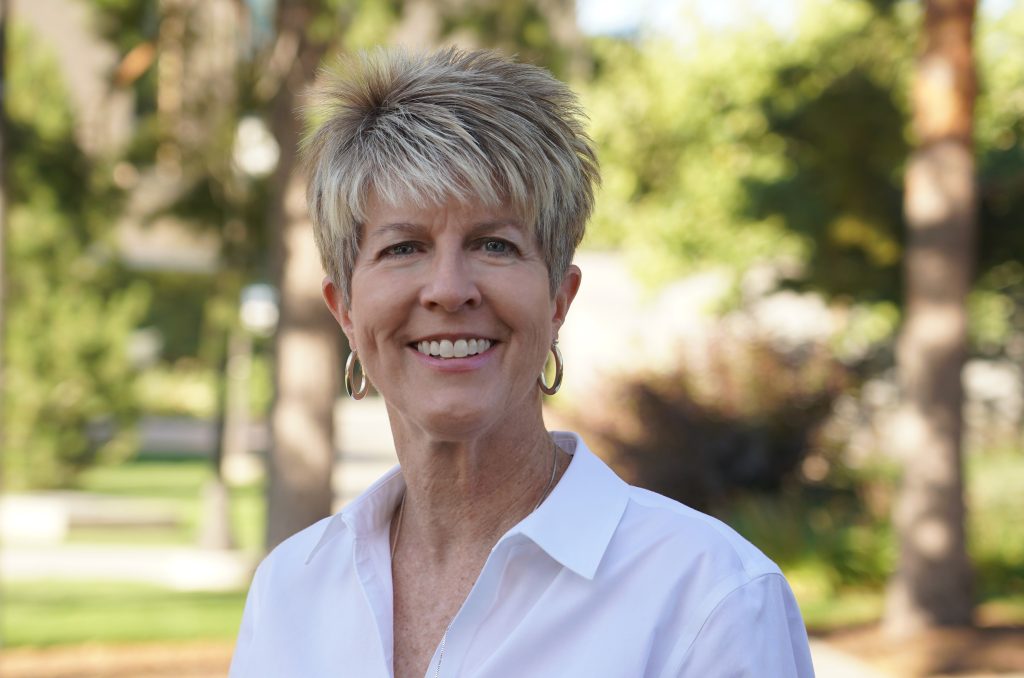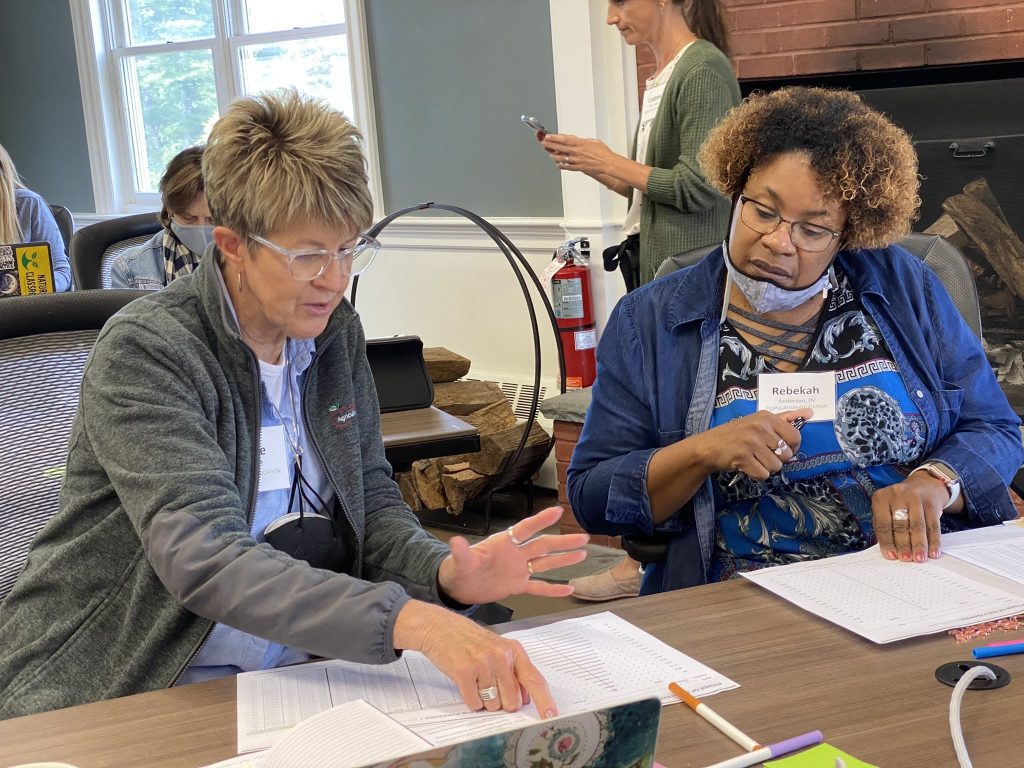Population Education is proud to announce 2023’s Most Valuable Trainer: Denise Stewardson! Denise has been an enthusiastic supporter of the PopEd program for years, and has been a prolific presenter since joining the Network in 2020. Her passion for sustainable food systems and agricultural literacy make her an inspiring facilitator.
Denise is the Director of the Utah Agriculture in the Classroom (AITC) program at Utah State University. She and her colleagues at AITC were instrumental partners when PopEd updated the popular lesson Earth: Apple of Our Eye in 2021. They reviewed all of the data analysis behind the apple cuts and posed questions that helped us flesh out categories prior to publication. You can even find a 3D model of an apple using PopEd’s data at AITC’s website!

I recently chatted with Denise about her involvement with PopEd, and learned more about what inspires her work:
PopEd: How did you discover and begin using PopEd materials?
DS: I’ve been using PopEd resources for so long that I honestly can’t remember how I discovered them! I do, however, remember meeting members of the PopEd team at the exhibit hall at the 2019 joint conference with the National Council for the Social Studies and the National Council for Geographic Education. I was presenting as a member of the National Agriculture in the Classroom Organization NAITC, and I was thrilled to put faces to the names I’d read online. That conversation was the beginning of a very fruitful, fulfilling relationship with PopEd.
PopEd: What made you want to be a PopEd Trainer?
DS: During my initial meeting with the PopEd team at the aforementioned conference, I signed up for the newsletter so I could stay abreast of resources. When I read about the opportunity to become a trainer, I knew this would give me the chance to learn more about—and apply—the resources that were so useful in my own programming with agricultural literacy and in teaching a university food literacy course. I participated in the online training in 2020 (thanks to the pandemic) and then attended the in-person training in the summer of 2022. Meeting the entire PopEd team and working with educators from across the country was so inspiring!
PopEd: What is your favorite PopEd lesson plan?
DS: Population Circle is my favorite lesson. There are so many engaging, fun lessons, but the activity in which participants step into the growing global population circle as a 500-year time span is depicted using counting cards always elicits gasps of surprise! It’s a simple, effective tool to visibly watch the population grow exponentially.

PopEd: What is your most memorable experience or presentation as a PopEd trainer?
DS: In the fall of 2023, I had the opportunity to present two workshops at the National Council for Geographic Education annual conference. In the first one, I represented AITC and focused on resources related to geography and agriculture; in the second one, I represented PopEd and focused on experiential activities for a world of 8 billion people. Many of the teachers attending my PopEd workshop were what I fondly call “repeat offenders,” who had participated in my NAITC session. These teachers were so motivated to participate in our hands-on activities in order to offer these experiences to their students. Their questions and discussions were incredibly insightful—many of them taught AP Human Geography—and together, we talked about how these agricultural literacy and population demographic resources were a perfect fit in addressing interdisciplinary educational standards.
During the remainder of the conference, participants who hadn’t attended the workshop told me they’d heard rave reviews from their colleagues, and they wanted to know how to access the information and resources.
PopEd: Any specific tips or ideas on using Pop Ed materials or presenting PopEd workshops?
DS: Because the teachers with whom I interact in these workshops have varied experiences and teach different grade levels and subjects, I like to set the stage by starting my trainings with a brief “State of the Planet” discussion. For example, “What is the current global population?” “What is the projected population for 2050?” “Is there enough food to feed the global population?” “If you answered ‘yes,’ why are there hungry people in the world?”
I also distribute Degree of Impact cards and ask teachers to read them aloud, one by one. The information on these cards elicits engaging questions for discussion and often result in wide-eyed “I didn’t know that” expressions on teachers’ faces!
Congrats, Denise, and thank you for all the support you’ve shown PopEd!


